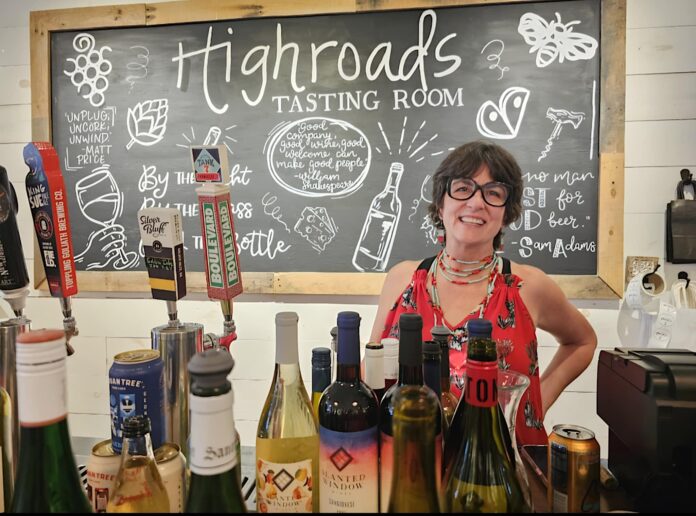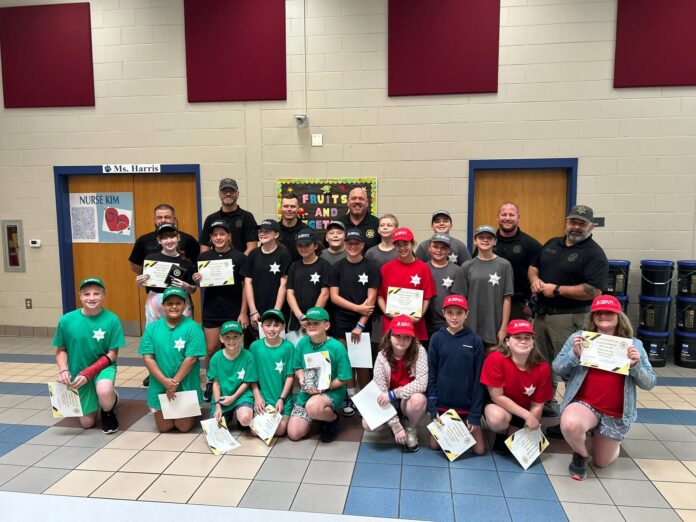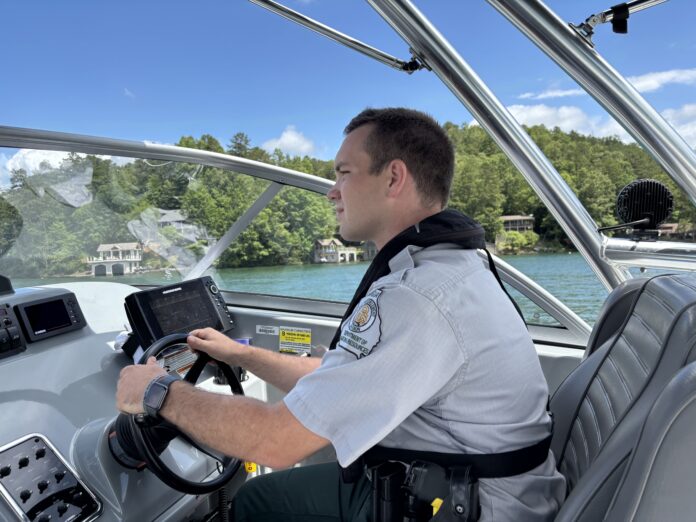Three people enter a bar: a writer, an accountant, and a musician. Instead of leaving with a joke, they take business cards and a new Facebook buddy with them. Over the clink of cold drinks and the murmur of guitars, they converse around a table made of repurposed wood. Unfamiliarity is lessened by the wine that Lynda Ann and Matt Price of Highroads Tasting Room pour. Collaborators are strangers. By the time they are ready to depart, they have developed the rudiments of a partnership and shared more than just contact details.
Why Highroads matters
The Southern Highroads Scenic Trail, a 364-mile path that winds across four states and numerous mountain communities, is the inspiration behind the naming of the Highroads Tasting Room. Similar to the tasting room, the route represents exploration and community.
Highroads’ story is both practical and intimate. In 2019, Lynda Ann met her husband while volunteering together at the Wild Goose Festival in North Carolina. Their collaboration, which was founded on hospitality, respect for one another, and a love of community, evolved from a shared service into a shared vision called Highroads.
The place is filled with such spirit. Work by local artists is shown on revolving walls. The space is filled with trivia evenings. On weekends, local bands perform. Visitors can create seasonal ornaments, paint mugs, or simply have a quiet drink with companions. Visitors frequently comment on how affectionate the two are—no drama, just ease and friendliness.
Lynda Ann has a long history. She used to teach high school in Rabun County, and she frequently greets former pupils who drop in for a cup of coffee. She also assisted in spearheading the Ramshackle campaign to divert highway traffic into downtown as vice president of the Clayton Merchants and Business Association. Highroads is therefore more than just a company. Investing in the type of neighborhood her former students may like to call home after graduation is a long-term commitment.
Highroads on Clayton’s Main Street has developed into a meeting spot. However, the tasting facility, which is a mainstay of this town in North Georgia’s cultural life, is currently in danger of dying because of the city’s ordinance code rather than foot traffic or money.In Clayton, Georgia, Lynda Ann and Matt Price take in the Ramshackle Street Festival. (The Cute North Georgian Magazine/Carly McCurry)
A looming crisis
Section 4-45 of Clayton’s very precise 2019 code restricts tasting venues to serving only Georgia-made wines by the glass.
At first look, this could appear to be a net positive and beneficial assistance for nearby vineyards. However, in reality, it restricts tiny companies like Highroads and assumes that a tasting room is only there to cater to another industry. Consider a nursery that sells only native flora or a bookstore that is only permitted to carry Georgia authors in order to support local authors. Offering wines, meads, beers, and mocktails from all around the nation and abroad, Highroads lives on well chosen discovery. Before a glass is poured, the experience is cut in half by the law.(The Cute North Georgian Magazine/Carly McCurry)
This implies that Highroads is unable to offer the customized wine orders that patrons anticipate from a tasting facility. They are unable to create flights that draw attention to the differences between a North Georgia blend and a Willamette Pinot Noir. This is more than simply a practical issue; it undermines the establishment’s identity, as tasting is supposed to broaden rather than constrict horizons.
Counterpoints
The ordinance’s proponents contend that it safeguards the emerging wine sector in Northeast Georgia. Local stores might provide a steady market for vineyards in rural areas. The ordinance helps small producers establish themselves and keeps spending local. Reform opponents fear that if the rule were loosened, local manufacturers would be forced out by international distributors. In this context, the law serves as a safeguard against consolidation rather than a restriction.
There are also many who contend that legal clarity is important. Signing a contract signifies acceptance of its terms, and regulations, no matter how faulty, nonetheless have legal force behind them. The ordinance may still be applicable even if Highroads misinterpreted it, even if they did so in good faith. For 14 months, the company
operated with the reasonable assumption that they were allowed to serve wine by the glass from any location where their bottles were lawfully obtained under the state’s more general ordinance. Prior to being brought into closer light, the specific areas of conflict between state and local law were unclear.
But should the letter of the law be superseded by intent? The answer is no to some. According to this perspective, conformity is essential and not voluntary. The breach may still occur even if Highroads was unaware that they were in violation. According to this interpretation, the ordinance’s enforcement is a necessary act of governance for those in charge of overseeing the city’s operations and is not punitive.
How many citizens see the conflict at Highroads
The majority of locals don’t understand legal fine print. They perceive a more general civic query: Is this ordinance even necessary? And who stands to gain if it does?(The Cute North Georgian Magazine/Carly McCurry)
This rule not only restricts wine lists but also chooses who is allowed to establish a business in Clayton. Will Atlanta’s wealthy investors, who can afford the restrictions, own downtown? Or to small business owners who thrive on adaptability and well-considered offerings?
There is a more fundamental problem: Why are certain companies supposed to support others? Should a tasting room serve as a kind of public wine subsidy? Businesses flourish or fail on their own in a free market. Here, however, it seems that the ordinance is imposing a protectionist cost on Highroads rather than producers.
Many are wondering why one company receives state backing while another must cater to it in a region where people of all political persuasions revere limited government and the ideal of the Yeoman farmer.
Rally planned as City Council prepares to act
In order to decide whether to align the local ordinance with state law, the Clayton City Council will convene at 5 p.m. on July 8 and hold a work session at 4 p.m. Clayton’s farm winery ordinance would follow state law if it were approved.
Do you want to help Highroads? You can email the municipal council using the details provided below, or you can sign the petition HERE.
Want to lend a hand in person? On June 24 at 6 p.m., a devoted patron is planning an event at Highroads called The Great Main Street Wine-In. Additionally, supporters are welcome to attend the public city council meetings.
Contact details for the Clayton City Council:
Amanda Harrold: [protected email]Althea Bleckley: [protected email][email protected] Tony AllenGillespie, Sarah: [email protected]Stacy Fountain: [protected email]
Both the community and the mountains are calling. Now is the time to take action. Is it time for Clayton to repay Highroads for everything that it has done for him? What do you think? Please share your thoughts in the comments area.

 by
by 

